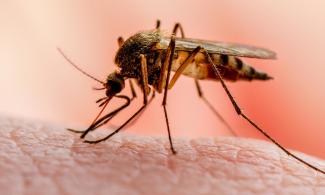
It lamented that most of the communities visited are without drainage and always flooded at the slightest rain.
A group, #EndMalariaInNigeria, has called on the Nigerian government to take the fight against Mosquito seriously to end Malaria in the country.
The group, which made the call in a statement on Sunday to mark the 2023 World Mosquito Day, advised the government to invest in infrastructural development, public healthcare, science and technology to stop high malaria mortality in the country.
The statement titled "Nigeria Government; Divert All Efforts To Combat Mosquito To Stop High Malaria Mortality In Nigeria," was signed by the Convener of the group, Mr Francis Nwapa.
Nwapa said that poor housing systems with poorly constructed gutters, open dumping, and poor water management have been discovered as responsible for the increasing malaria mortality in Nigeria.
The statement reads in part: "Revelations from the ongoing Mosquito Control intervention among 300 pregnant and nursing women in Ndokwa West local government area, Kwale, Delta State, organised by #EndMalariaInNigeria in partnership with Malaria Partners International, Hatch pest control and Environmental Service Ltd and Rotary Club of Kwale New Dawn, reveals that poor housing system, no or poorly constructed gutters, open dumping and poor water management are what leads to the increasing Malaria Mortality in Nigeria.
"Most pregnant and nursing women our team carried out Indoor Residual Spraying of their homes live in houses without roofs, some without windows and doors. Most of these women also live with their babies in deplorable houses not suitable for animals."
It lamented that most of the communities visited are without drainage and always flooded at the slightest rain.
"Our findings also reveal that despite the presence of multinational oil giants in these communities, they are without electricity, accessible public healthcare, and infrastructures among others, which contribute drastically to high malaria mortality in the state.
"We call on the government to prioritize building modern drainages and dams, proper massive housing schemes, sanitary landfill, and fund existing medical and vaccine centers as preventive measures to combating mosquitoes known to be the only vectors that transmit Malaria and other dangerous diseases.
"Government should be committed to playing a leading role to end malaria in Nigeria to save over 300 thousand lives lost to malaria annually."